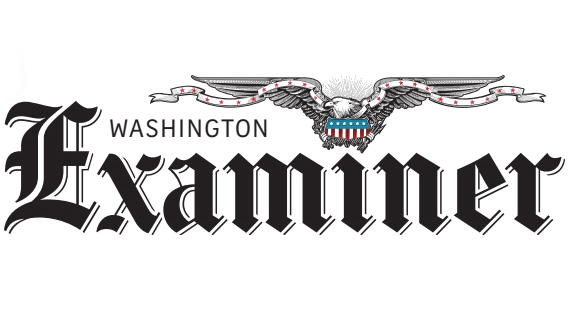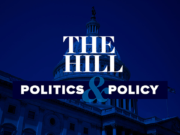More than a thousand students gathered at the Maryland state capitol in March as part of the national “March for Our Lives” demonstrations against school shootings. Presumably, these students used the Internet, social media, or mobile device apps to organize their rally.
In so doing, they may have committed a crime under an obscure Maryland law.
Instead of fixing this flawed speech law, the Maryland General Assembly recently passed a bill to reenact and expand it. The legislation purports to counter foreign online political propaganda. But in reality, the new burden it would place on Marylanders’ Internet speech threatens our First Amendment rights. Gov. Larry Hogan, R, should veto the bill.
At issue is HB 981, the so-called “Online Electioneering Transparency and Accountability Act.” If signed into law, the bill would reenact the state’s existing regulation of “campaign material.” The term includes any “material transmitted by or appearing on the Internet or other electronic medium” that “relates to” a candidate, prospective candidate, ballot measure, or prospective ballot measure. If you think about it, that includes just about anything.
All “campaign materials” must include a disclaimer with the name and address of the person or group responsible for the material. “Campaign materials” deemed “in support of or in opposition” to a candidate must include a longer disclaimer stating who did and did not “authorize” or “approve” the message. Violations are punishable by up to a year in jail, a $1,000 fine, or both, regardless of whether a violation was inadvertent or intentional.
The Maryland law is vague and overbroad. By regulating discussion of any issue that “relates to” a candidate, elected official, or even some theoretical ballot measure that hasn’t been proposed yet, the law poses a threat to political free speech in the most vibrant medium today — the Internet. For example, online discussions about gun control could “relate to” any elected official who has ever taken a position on it. Consider also that the law could have regulated speech about the 2015 death of Freddie Gray while in Baltimore police custody, which “related to” Mayor Stephanie Rawlings-Blake. The political discussion surrounding that led to her deciding against seeking reelection. Should it have been punished under this law?
We need more speech about such matters, not less. Yet, how many Marylanders speaking on social media about these issues understand that they face jail time if they fail to include the disclaimer required by the bill and law?
Such an expansive reading of the Maryland law also is not far-fetched. The U.S. Court of Appeals for the Ninth Circuit took exception to a similarly-worded Nevada law. Like Maryland, Nevada required disclaimers for any “material or information relating to an election, candidate, or any question on a ballot.” The court held this requirement was unconstitutionally overbroad, as it could cover discussion of any number of issues, and was not limited to election advocacy or even discussion of specific candidates or ballot measures.
It is bad enough that HB 981 would reenact Maryland’s unconstitutional speech law. But the bill would make matters even worse by imposing a whole host of additional reporting and record-keeping requirements. These requirements cover any so-called “campaign materials” that are paid or promoted for a fee on websites or online platforms, even if the paid promotion goes to only a tiny group of one’s social media connections. Bizarrely, speakers must declare whether their speech “supports or opposes” a candidate or ballot issue, even if the content does neither. Detailed information about the message would have to kept for review by bureaucrats at the State Board of Elections.
Citizens and lawmakers understandably are concerned about hostile foreign interests trying to influence American voters over the Internet. But expedient and overbroad laws that burden and hinder free speech are not the answer. By eroding this cornerstone of our democracy, HB 981 plays straight into the hands of an autocratic foreign agenda.
This post originally ran in the Washington Examiner on May 17th 2018.














